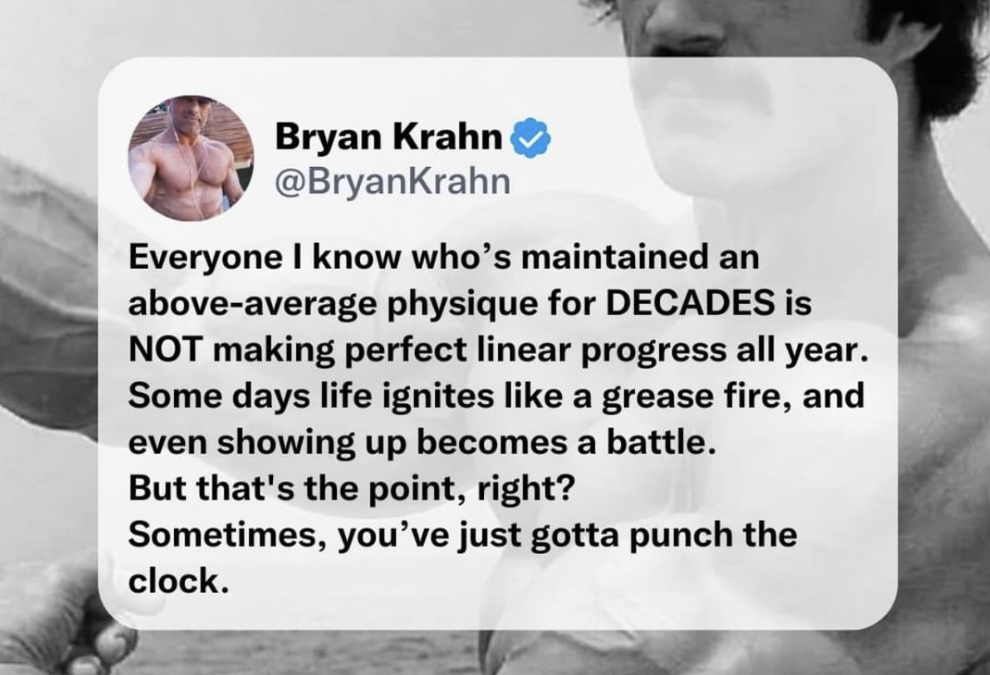A big problem with the health and fitness industry is a proclivity to strip all nuance from complex topics to make everything a neat, shareable soundbite.
This perpetuates a one-size-fits-all fallacy that fails to consider individual circumstances, leading to poor advice and unrealistic expectations.
Take progress, for example.
Yes, you “should” try to lift more weight or do more reps each workout. And yes, you should try to nail the dietary process a little better every day.
However, what must change is the ridiculous standard where you have to show clear, measurable progress every day/workout/whatever. If not, you’re doing something horribly “wrong” or just wasting your time.
Take any long-view activity—like your job, schooling, or even parenting.
Of course, it’s good to aspire to do better every day. But some days, it’s just not possible—often for reasons far outside your control.
The harsh reality is that some days life ignites like a grease fire, and even showing up becomes a battle.
But that’s the point, right?
You show up anyway.
And if you’re smart (or your coach is) you’re prepared for rough days. Maybe you have a set of alternate “B workouts” for days you feel scattered or stressed or on the road?
Or maybe you hit the same workout but chase a less demanding “carrot,” such as reducing the load and focusing on perfect form?
It starts with adopting a more nuanced definition of progress and it’s essential for playing the long game.
Everyone I know who’s maintained an above-average physique for DECADES is NOT making perfect linear progress all year. At least not in ways or measures that fit neatly into a handy online tracker or Excel sheet.
But they always show up, are present in the moment, and do their best on any given day.
Sometimes you just gotta punch the clock.
– Coach Bryan

